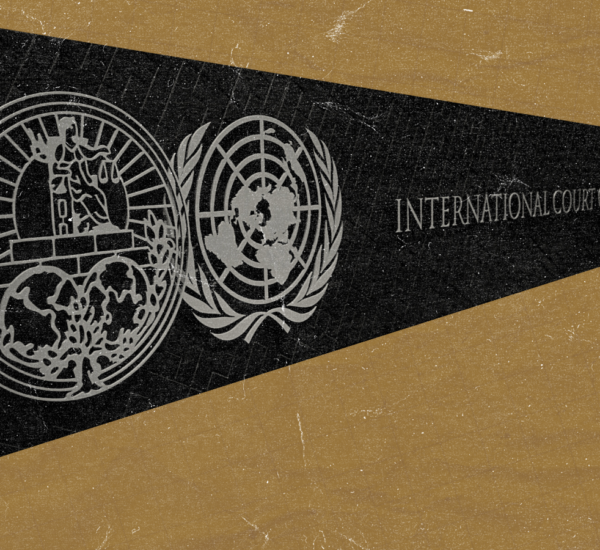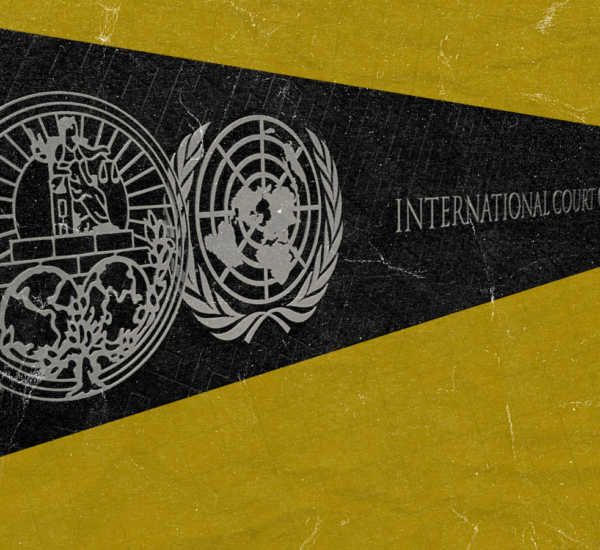
Prabha Kotiswaran

Shardha Rajam
In this interview, Dr. Prabha Kotiswaran, Professor of Law and Social Justice at King’s College London, and the principal investigator of the Laws of Social Reproduction project discusses with Shardha Rajam, research associate at the Laws of Social Reproduction project, the Indian Supreme Court’s orders in Buddhadev Karmaskar v. State of West Bengal (Criminal Appeal No. 135 of 2010). In its order dated 19th May 2022, the Supreme Court acknowledged several rights of sex workers including but not limited to their right to dignity, right to privacy and a life free from violence.
- Shardha Rajam (SR): The Supreme Court’s order in Buddhadev Karmaskar has been heralded by activists, sex workers and academics, especially at a time when we see red light areas being targeted by the carceral state, and sex workers being evicted from their homes on the pretext of preventing the spread of COVID-19. Can you explain the significance of the order, especially with regard to the legitimacy of sex work itself, and the order’s impact on the Raid, Rescue, Rehabilitation model of India’s trafficking laws?
Prabha Kotiswaran (PK): The Supreme Court’s May 2022 order is path-breaking in many ways. It reinterprets the central provisions of the Immoral Traffic (Prevention) Act, 1986 (ITPA) in significant ways. The ITPA conflates voluntary sex work and trafficking. While the Court did not directly comment on the issue of whether voluntary sex work can be decriminalised, by directing governments to audit ITPA homes and release adult women held against their will in these homes, the court recognises the right of adult women to make decisions about their bodily autonomy and choices. Where the ITPA requires the arrest and detention of adult sex workers irrespective of their choices, the Court requires that women make the ultimate decision about whether they want to stay in a home or not. By stating that sex workers’ right to dignity is protected under Article 21 irrespective of their occupation, the Court has made the ITPA subject to the mandates of constitutional morality. By directing that the police and media not abuse sex workers and that the state address sexual violence against sex workers, the Court has sought to negate the various perverse consequences of the criminalisation of sex work in the ITPA inflicted on sex workers by a carceral state, by public opinion and by stakeholders in the sex sector itself, including customers who abuse sex workers with little action being taken by the state. In many ways, the May 2022 order of the Supreme Court paves the way for the decriminalisation of sex work. This makes the next hearing of the case all the more significant.
Where the ITPA requires the arrest and detention of adult sex workers irrespective of their choices, the Court requires that women make the ultimate decision about whether they want to stay in a home or not. By stating that sex workers’ right to dignity is protected under Article 21 irrespective of their occupation, the Court has made the ITPA subject to the mandates of constitutional morality.
- SR: Can you describe in brief how the matter of Buddhadev Karmaskar came to be heard by the Supreme Court in regard to sex work? What was the nature of organisation and mobilisation by sex workers and activists prior to the May 2022 order, and what sort of governance of sex work did we see by the Supreme Court? In what ways did it fill legislative gaps?
PK: The Supreme Court first heard the case of Budhadev Karmaskar v. State of West Bengal (Criminal Appeal No. 135 of 2010) as part of a criminal appeal in a case relating to the murder of a sex worker in West Bengal. As part of this case, the Supreme Court set up a panel consisting of experts through an order dated 19.07.2011. The terms of reference of the panel dealt with the prevention of trafficking of women and children into sex work; the rehabilitation of sex workers who wished to leave sex work, and promoting conditions conducive for sex workers to live with dignity in accordance with the provisions of Article 21 of the Constitution of India. Prior to that, the sex workers’ movement in India focused on legislative reform, particularly in pushing back against the government’s proposal to abolish sex work through the criminalisation of demand for sexual services, namely, of customers of sex workers. In these attempts to change the ITPA and the Indian Penal Code (IPC) in 2005 and 2013, respectively, sex workers were not consulted. The Karmaskar case presented a radical break with this tradition by involving sex workers’ groups on the panel set up by the Supreme Court so that sex workers were fully represented in any recommendations made in relation to their welfare. It is this consultative and participatory process that resulted in a report of the panel submitted in 2016. The panel recommended that rehabilitation must not be coerced and that while sex workers who wanted to exit the occupation should be supported, that adult women who wished to continue doing sex work consensually should be treated with dignity and respect and be decriminalised. While the case continued to be heard, lawyers for the Kolkata-based sex workers’ organisation, the Durbar Mahila Samanwaya Committee then approached the Supreme Court for orders to protect sex workers during the pandemic which eventually led to the passage of the May 2022 order. As the case progressed, the court took up the ten key recommendations made by the panel, of which the government objected to four recommendations pertaining to decriminalisation but was willing to concede to 6 of them which is the subject of the May 19, 2022 order.
Specifically, the Court held that every citizen had the right to a dignified life under Article 21 of the Constitution irrespective of their occupation. The Court directed that sex workers subject to sexual violence would not be treated any differently from other women. It held that the state must not detain them against their will in ITPA shelter homes. Hence the government had to conduct a survey of all ITPA homes and release adult women in a timely fashion. The court ordered that the police must not abuse sex workers and that public health measures used by sex workers must not be used as evidence of the commission of a crime under the ITPA. The court further ordered the media to be sensitive to the rights of sex workers and not reveal their identity and that the government conduct training programs to educate sex workers on their rights and enable their access to justice. Finally, the Court upheld the rights of sex workers to subsistence including the right to food, clothing and shelter.
Specifically, the Court held that every citizen had the right to a dignified life under Article 21 of the Constitution irrespective of their occupation. The Court directed that sex workers subject to sexual violence would not be treated any differently from other women.
- SR: The Supreme Court’s order in Buddhadev Karmaskar adopts an approach towards sex work which appears to be different from the approach of the Trafficking in Persons (Prevention, Care and Rehabilitation) Bill, 2021. If the 2021 Bill is passed, how will it change the landscape as it has been since the Supreme Court’s order?
PK: It is very difficult to answer this question. Much will depend on the outcome of the next hearing in the Supreme Court. That is when we will know from the government its plans in relation to the 2021 Bill, which was made available for consultation in July 2021. We do not know the outcome of the public consultation and which suggestions made by stakeholders will be accepted by the Ministry of Women and Child Development. However, if the 2022 version of the Trafficking Bill is substantially similar to the 2021 version, we can be sure that the Bill will not only effectively channel the letter and spirit of the ITPA, it will go further than the ITPA by criminalising the customers of sex workers. There are many aspects of the Bill that are unconstitutional, especially so in light of the May 2022 order of the Supreme Court in the Karmaskar case. To the extent that the Supreme Court requires that the ITPA be implemented subject to Article 21 of the Constitution, if and when the Trafficking Bill is passed, it can be challenged in the courts for violating a range of fundamental rights including under Articles 14, 19 and 21. The Supreme Court has elaborated on everything that is wrong with the ITPA. It would therefore be essential for the Ministry of Women and Child Development to take heed of the May 2022 order of the Supreme Court and to rework the 2021 Trafficking Bill, root and branch.
It would therefore be essential for the Ministry of Women and Child Development to take heed of the May 2022 order of the Supreme Court and to rework the 2021 Trafficking Bill, root and branch.
- SR: There has been some intervention by the Special Rapporteur on trafficking in persons, on the 2021 Bill. Can you explain in brief what are the concerns of the Rapporteur, how the 2021 Bill relates to India’s international obligations, and whether these are addressed by the Supreme Court’s order?
PK: In December 2021, the Special Rapporteur on Trafficking in Persons, the Special Rapporteur on Violence against Women, and the Working Group on discrimination against women and children issued a strong statement on the 2021 Trafficking Bill, echoing the concerns and critique that many civil society actors expressed when the Bill was open for public consultation in July 2021. In particular, UN experts were concerned that the Bill did not ensure the timely identification of victims of trafficking, and that it did not ensure assistance and protection to victims of trafficking. They expressed particular concern about mandatory reporting requirements of the Bill; indiscriminate powers of the police to remove a person who they believe is a victim of trafficking; the lack of protection for men, trans and non-binary persons against non-consensual medical examination; the lack of safeguards against the arbitrary detention of victims and their institutionalisation; and the Bill’s failure to protect the best interests of the child.
The May 2022 order of the Supreme Court is a strong indictment of the forcible institutionalisation of adult women under the ITPA and in that sense it echoes the concerns of the UN experts vis-à-vis the Trafficking Bill.
The May 2022 order of the Supreme Court is a strong indictment of the forcible institutionalisation of adult women under the ITPA and in that sense it echoes the concerns of the UN experts vis-à-vis the Trafficking Bill.
- SR: In what ways can the Supreme Court’s order be used as a device to allow India to lead efforts towards recognising sex work as work? More generally, in what ways can the perspectives of developing countries in relation to anti-trafficking change the global discourse?
PK: The May 2022 order of the Supreme Court is the most powerful order protecting the rights of sex workers in a long string of orders issued under the case. However, the next hearing in the case will be key. At this hearing, the Supreme Court will hear the government’s response to the four recommendations of the Karmaskar panel that the government disagreed with. These recommendations were that the police refrain from taking action against adult women consensually engaging in sex work; that sex workers not be harassed during a police raid since voluntary sex work is legal; that during a raid, a child of a sex worker not be presumed to be trafficked and be separated from their mother; and that sex workers and their representatives be consulted during law reform processes. The May 2022 order goes a long way towards decriminalisation, but the outcome of the next hearing and the Supreme Court’s decision in the matter will be decisive. If in fact the Supreme Court follows through with its order in May 2022 and holds that voluntary sex work by adults is not a crime, then most provisions of the ITPA will become meaningless and the Act could be repealed. However, to the extent that the Trafficking Bill 2021 embodies the content and spirit of the ITPA as it currently stands, its eventual passage in Parliament will mean that the Bill will need to be challenged before the courts leading to a protracted battle in the courts on the legal status of sex work.




